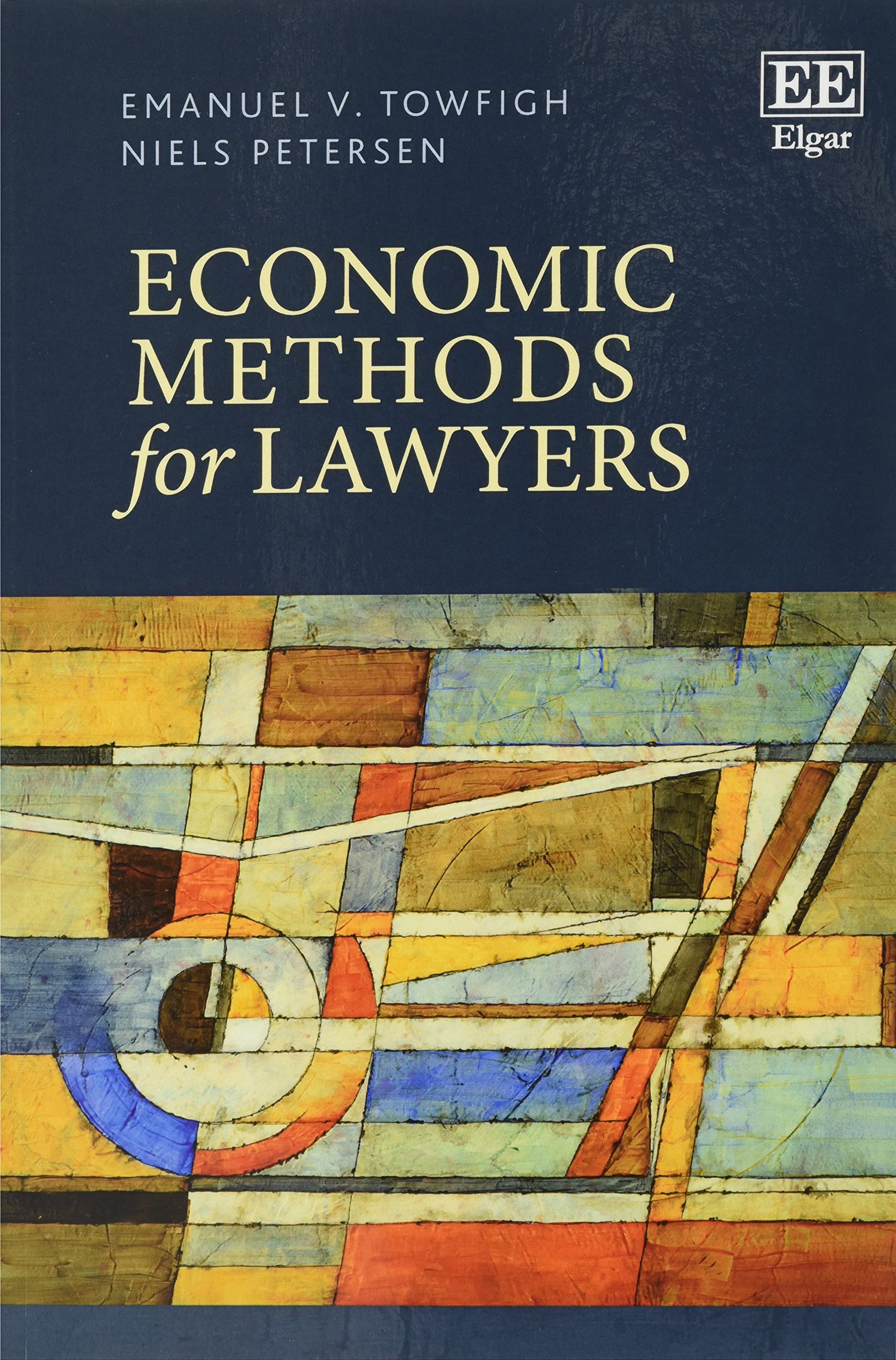Emanuel V. Towfigh andNiels Petersen, with contributions by Markus Englerth, Sebastian J. Goerg, Stefan Magen, Alexander Morell and Klaus Ulrich Schmolke
The textbook »Economic Methods for Lawyers«, published 2015 (hardcover) and 2017 (softcover) with Edward Elgar, is now available open access (i.e., the PDF files of the chapters are freely available, at no cost) using a CC-BY license:
Table of Contents | Flyer
224 pages
Cheltenham, Edgar Elgar Publishing
Published in print: 27 Nov 2015
ISBN: 9781783471669
eISBN: 9781783471676
DOI: 10.4337/9781783471676
Buy | Access E-Book
About the book
Responding to the growing importance of economic reasoning in legal scholarship, this innovative work provides an essential introduction to the economic tools which can usefully be employed in legal reasoning. It is geared specifically towards those without a great deal of exposure to economic thinking and provides law students, legal scholars and practitioners with a practical toolbox to shape their writing, understanding and case preparation.
The book’s clear focus on economic methods poses a refreshing change to conventional textbooks in this area, which tend to focus on content-related theories. Recognising that it is often difficult to derive adequate conclusions for legal arguments without first understanding the methodological limitations of economic studies, this book provides a comprehensive coverage of the most important economic concepts in order to bridge this gap. These include:
- game theory
- public choice and social choice theory
- behavioural economics
- empirical research design
- basic statistics.
Owing to its concise and accessible style, Economic Methods for Lawyers will provide an invaluable companion for legal scholars or practitioners who wish to utilise economic methods for developing legal argument.
Reviews
Testimonials
‘For lawyers, getting familiar with “the economic approach” implies a heavy investment as they need to learn a new language (that of economics) and the various methods used by economists. This is where Economic Methods for Lawyers comes in: the most important methods needed to become versatile in law and economics are presented in a fashion perfectly fitted to the needs of lawyers.’
– Stefan Voigt, Institute for Law and Economics, University of Hamburg, Germany
‘Narrow-minded lawyers think they need no economics. Negligent lawyers think they need no help for understanding economics. Smart lawyers treat economic arguments as challenging but tractable, and turn to this book for advice. They will find themselves powerfully retooled.’
– Christoph Engel, Max Planck Institute for Research on Collective Goods, Germany
